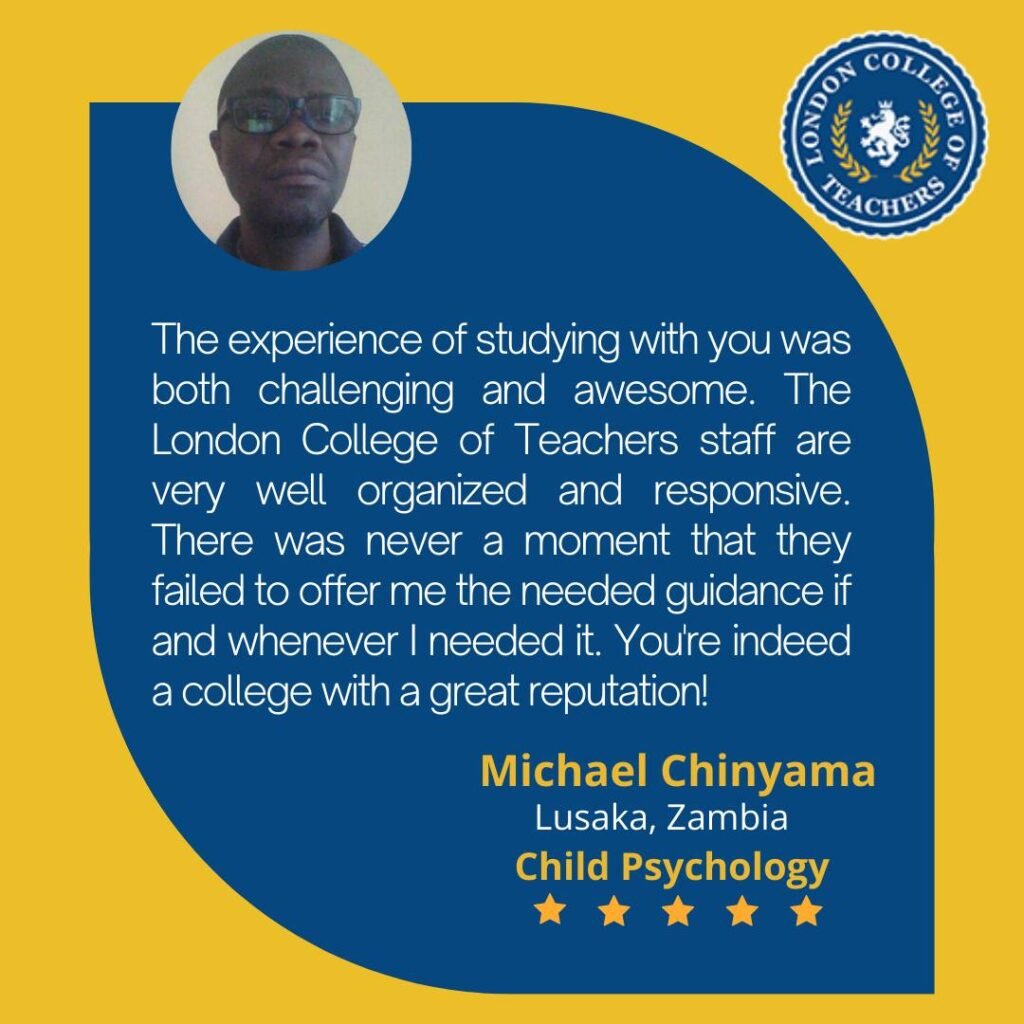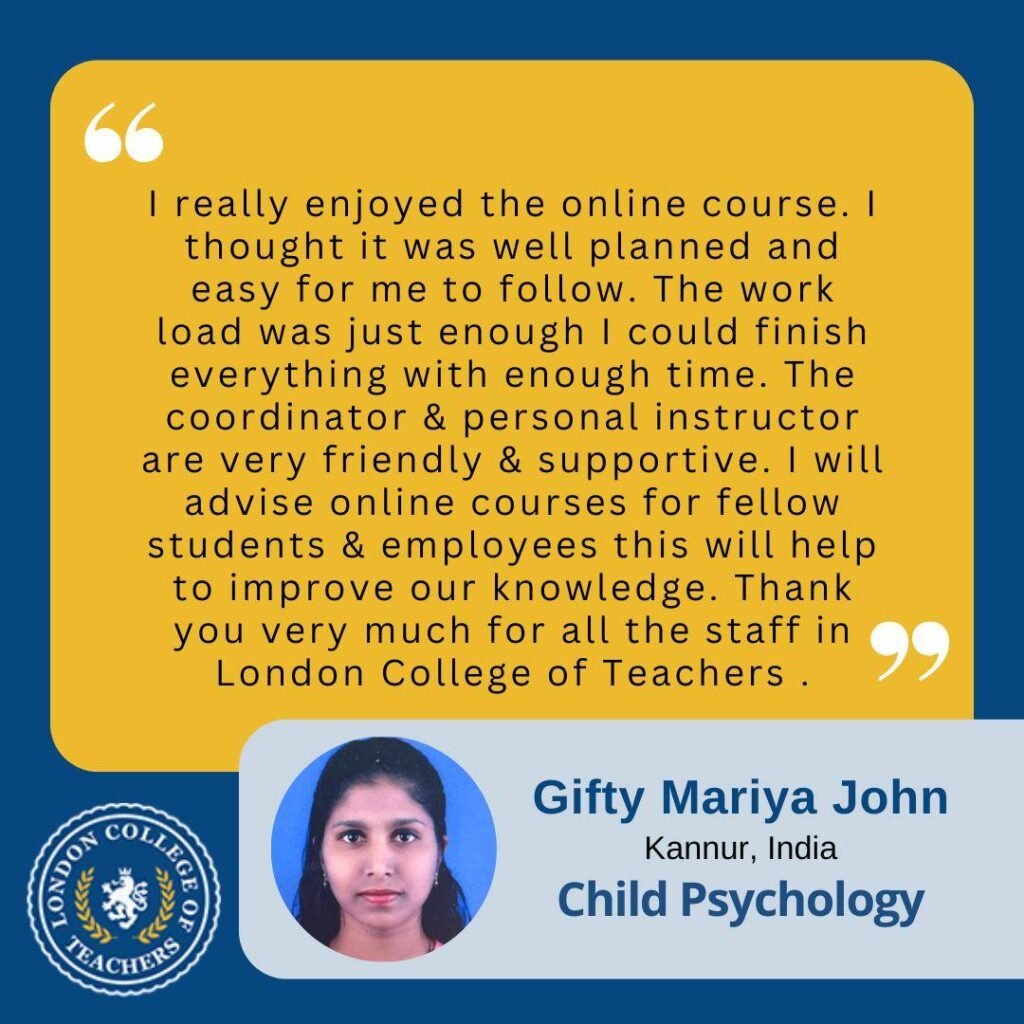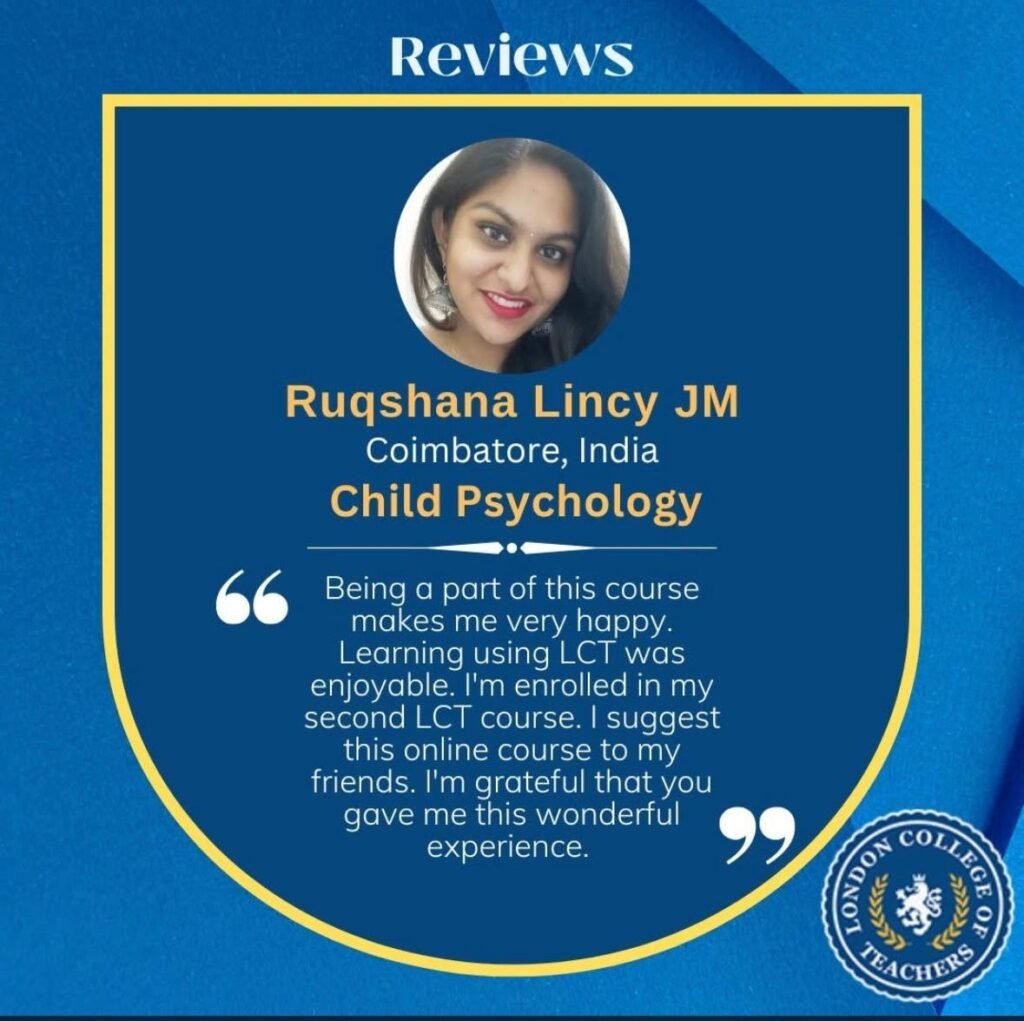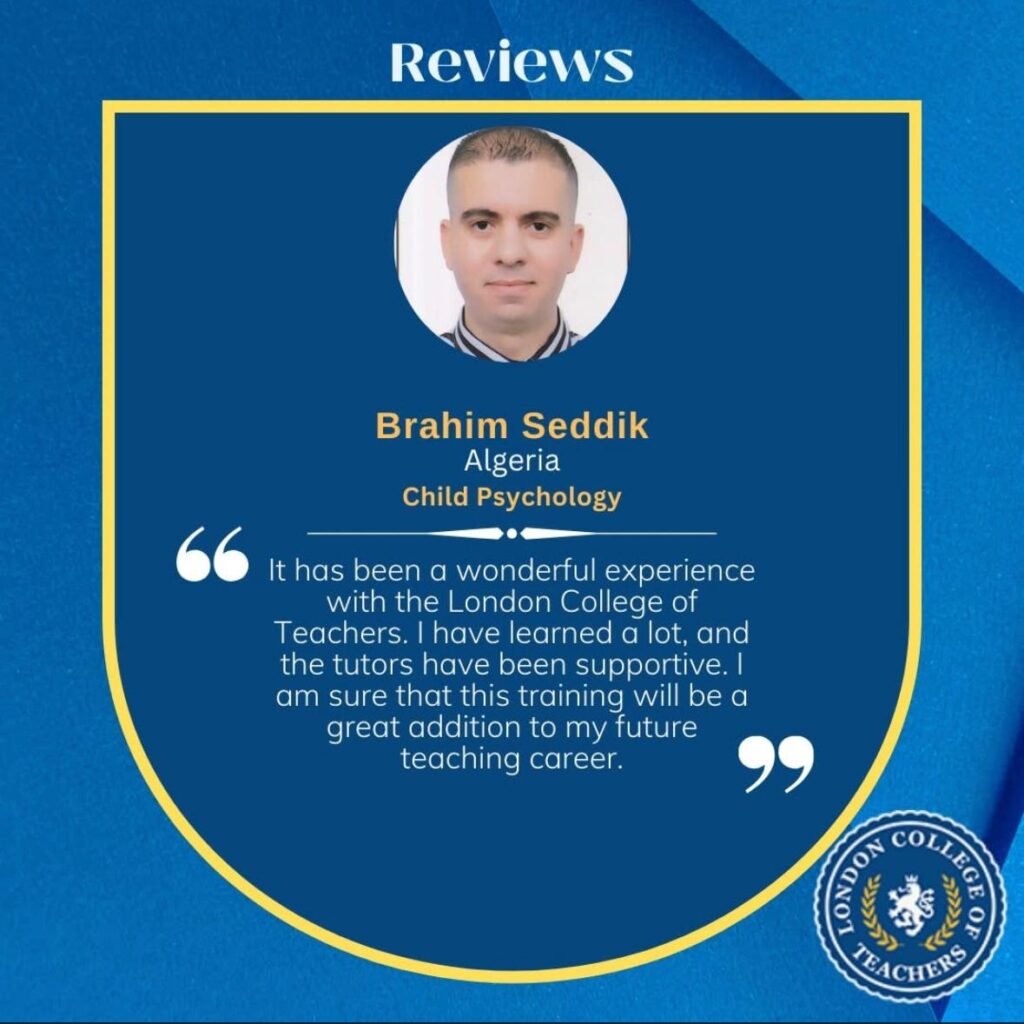How to Become a Teacher Skilled in Child Psychology: Complete Step-by-Step Path
Teaching is more than just imparting knowledge—it’s about shaping young minds. To excel in today’s dynamic educational environment, doing a child psychology course is highly valuable. Understanding a child’s mental, emotional, and social development helps educators create more effective lesson plans, foster better classroom behaviour, and ensure holistic learning.
Whether you are just starting your teaching journey or aiming to specialize further, this guide provides a complete roadmap to becoming a teacher skilled in child psychology. From educational requirements to practical teaching strategies, and including all essential certifications, this guide ensures you are fully equipped to thrive in the teaching profession.
Why Becoming a Teacher Skilled in Child Psychology Matters?
Child psychology plays a critical role in modern education. Teachers who understand child development can:
- Identify learning difficulties and adapt teaching strategies accordingly.
- Foster emotional intelligence and social skills in students.
- Create inclusive classrooms that support all types of learners.
- Improve student engagement and academic performance.
By combining educational expertise with knowledge of child psychology, teachers not only enhance learning outcomes but also become trusted mentors for their students.

Step-by-Step Path to Becoming a Teacher Skilled in Child Psychology
Acquire a Strong Foundation in Education
Before specializing in child psychology, it’s essential to have a solid teaching foundation. Start with:
- Bachelor’s in Education (B.Ed.) or equivalent teacher training programs.
- Courses in pedagogy, curriculum design, and classroom management.
A strong foundation ensures you understand the basic principles of teaching before focusing on child psychology.

Learn the Basics of Child Psychology
Begin with core principles such as:
- Cognitive development – How children learn and process information.
- Emotional development – Understanding feelings and responses.
- Behavioural patterns – Identifying and addressing behavioural challenges.

Pursue Certification in Child Psychology
Obtaining certifications enhances your credibility and practical expertise. Some recommended options include:
- Certificate in Child Development and Psychology.
- Workshops on early childhood mental health and learning strategies.
- Advanced courses in child counselling for educators.
Certified teachers are more likely to secure roles in prestigious schools and training institutes.

Gain Practical Teaching Experience
Theory alone is not enough. Real-world experience allows you to apply child psychology principles effectively. Options include:
- Internships at schools or learning centres.
- Volunteer teaching programs for diverse student groups.
- Mentorship under experienced teachers skilled in child psychology.
Hands-on experience helps in understanding classroom dynamics and student behaviour nuances.
Specialize in Advanced Child Psychology
Once you have foundational knowledge and experience, pursue advanced studies:
- Educational Psychology
- Behavioural Interventions
- Special Needs Education
Specialization allows you to work with students who require tailored learning approaches, making your teaching more impactful.
Continuous Professional Development
Education is a constantly evolving field. Stay updated by:
- Attending seminars and webinars on child psychology and pedagogy.
- Participating in professional teaching communities.
- Reading research journals and case studies on child development.
Continuous learning ensures you remain an effective, modern educator.
Skills Every Teacher Skilled in Child Psychology Should Develop
- Empathy – Understanding the emotional and social needs of students.
- Observation – Recognizing learning patterns and behavioural issues.
- Communication – Explaining concepts clearly and nurturing discussions.
- Adaptability – Adjusting teaching strategies based on individual student needs.
These skills make a teacher not just knowledgeable but truly transformational for students.
FAQs About Becoming a Teacher Skilled in Child Psychology
Q1. What qualifications do I need to become a teacher skilled in child psychology?
You need a basic teaching degree (B.Ed. or equivalent) and specialized courses in child psychology. These certifications help enhance your credibility and deepen your understanding of child development.
Q2. How long does it take to become a teacher skilled in child psychology?
Typically, it takes 3–5 years, including undergraduate education, certification programs, and practical teaching experience.
Q3. Can I work in mainstream schools with child psychology skills?
Absolutely. Schools highly value teachers who understand student behavior, emotions, and learning needs, making you a strong candidate in both traditional and inclusive classrooms.
Q4. Are there online courses available?
Yes. Institutions like London College of Teachers (LCT) offer online programs that combine theory with practical applications, making learning flexible and accessible.
Q5. What career opportunities exist for teachers skilled in child psychology?
Teachers with this expertise can pursue roles such as:
-
Classroom Teaching in primary or secondary schools
-
Special Education Roles
-
Educational Counselling
-
Curriculum Design and Training
Call to Action
Ready to transform your teaching career? Enroll in the London College of Teachers programs today and become a teacher skilled in child psychology. Start your journey to making a meaningful impact on young minds!